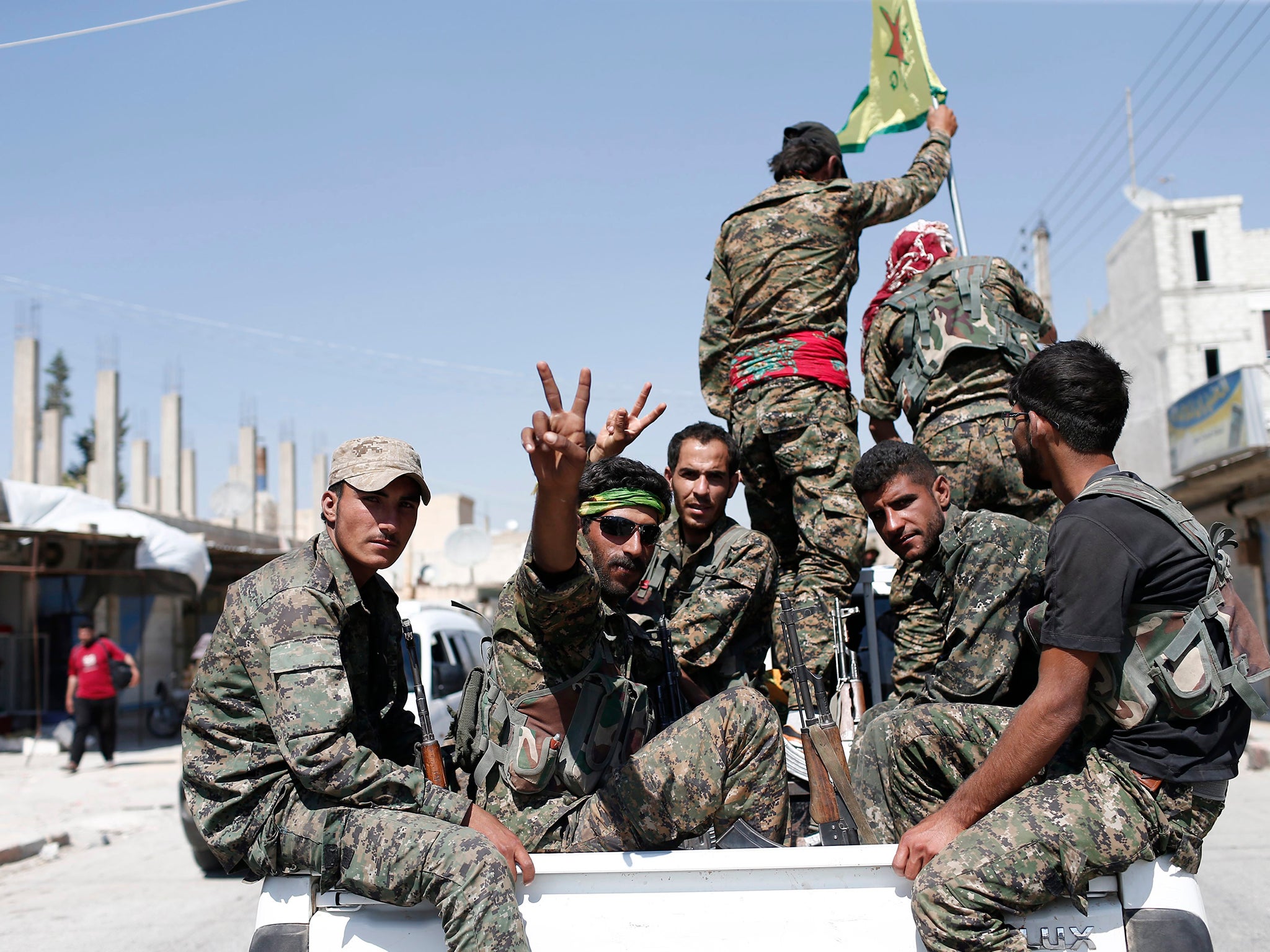Barack Obama risks Turkey backlash after lifting military aid restrictions in Syria
US waiver of restrictions on providing weaponry to unidentified fighting groups in Syrian conflict is widely viewed as a move to arm Kurdish forces ahead of battle for Raqqa

Your support helps us to tell the story
From reproductive rights to climate change to Big Tech, The Independent is on the ground when the story is developing. Whether it's investigating the financials of Elon Musk's pro-Trump PAC or producing our latest documentary, 'The A Word', which shines a light on the American women fighting for reproductive rights, we know how important it is to parse out the facts from the messaging.
At such a critical moment in US history, we need reporters on the ground. Your donation allows us to keep sending journalists to speak to both sides of the story.
The Independent is trusted by Americans across the entire political spectrum. And unlike many other quality news outlets, we choose not to lock Americans out of our reporting and analysis with paywalls. We believe quality journalism should be available to everyone, paid for by those who can afford it.
Your support makes all the difference.US President Barack Obama has waived prohibitions in the US Arms Export Control Act, which will allow the country to arm groups that are currently fighting in Syria’s civil war.
The waived sections of the law will allow the US to provide “defence articles and services” to forces within Syria allied to the US, the White House said on Thursday, a decision which is “essential to national-security interests”.
It is believed that the move will allow President Obama to arm the mainly Kurdish coalition fighters of the Syrian Democratic Forces (SDF), who are currently gearing up to retake the northern city of Raqqa from Isis.
Strengthening the SDF is strategically important for the US, giving them a future counter against President Bashar al-Assad’s forces, as US-backed rebel groups elsewhere in the country have crumbled.
The decision, however, is likely to further inflame US relations with Turkey, which views the Kurdish forces fighting against Isis as terrorists.
Turkey launched its own anti-Isis operation to clear the group from the border region in August, with a secondary motive of curbing any Kurdish appetite for expansion in the region.
US support for the Kurdish administration in Rojava is a source of tension between the Nato allies.
Speaking on Thursday, US State Department spokesperson Elizabeth Trudeau said that the US position on arming the Syrian opposition will not change even if the Syrian government is successful in retaking the contested city of Aleppo.
Whether US support for Sunni rebels in Syria’s six-year-old civil war will continue under President-elect Donald Trump’s administration is unclear.
Mr Trump has suggested that the US and the Syrian government could work together in order to combat the threat of Isis in future.
Join our commenting forum
Join thought-provoking conversations, follow other Independent readers and see their replies
Comments